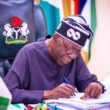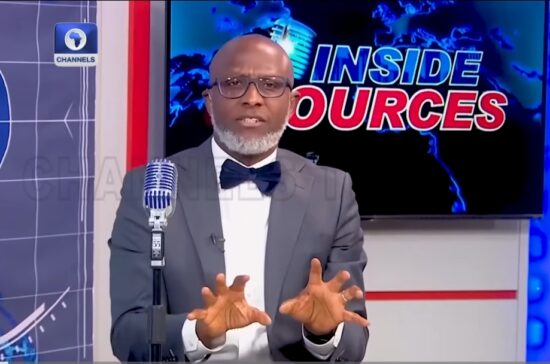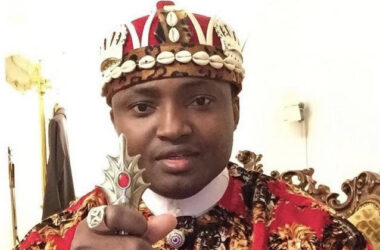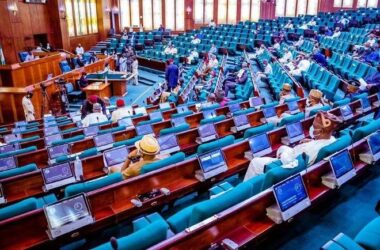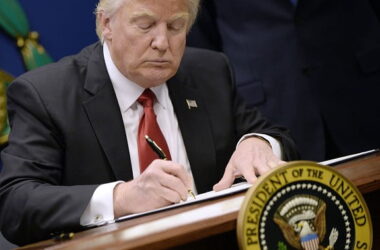The rising dominance of the All Progressives Congress (APC) at the national and state levels has reignited debates about the future of multi-party democracy in Nigeria. In a recent episode of Inside Sources with Laolu Akande, aired on Channels Television, the veteran journalist and former presidential aide engaged a US-based Nigerian political science professor Mujubaolu Olufunke Okome in a thought-provoking conversation on whether Nigeria is heading towards a one-party system — and what that could mean for the country’s democratic future.
The former presidential aide and veteran journalist, opened the discussion by highlighting recent political developments in Nigeria, including the defection of opposition politicians to the ruling APC, the weakening of internal party structures, and the perceived shrinking space for dissent.
Speaking on My Take segment on Inside Sources with Laolu Akande aired Sunday on Channels Television titled “The Fear of a One-Party State and One More Thing,” Akande dispelled fears of Nigeria falling into a one-party rule.
“But I honestly think that the Nigerian political elites are taking themselves too seriously on this one-party state issue. Our view is that Nigeria cannot become a one-party state for the simple reason that the politics of personal aggrandizement, the rentier political economy, and the tension lines of our national life simply makes the idea dead on arrival. And besides that, the brewing deep-seated dissent in the land contrasts very sharply against the charade of bandwagon partisanship that we have seen in the last few weeks,” he said.
Responding sharply, US-based political science professor Mujubaolu Olufunke Okome warned that the current political climate in Nigeria bears the hallmarks of “state capture” and “kleptocracy.”
Professor Okome, who lectures Political Science and Women’s Studies at Brooklyn College, City University of New York, argued that the creeping dominance of the All Progressives Congress (APC) in Nigeria’s political landscape threatens the core of democratic governance and opens the door for oligarchic control of the state.
“I think one-party states are dangerous,” she said. “And I dare say that one could even criticize Mwalimu Julius Nyerere of Tanzania, because in order to make a one-party state work, considerable state constraints are put on people who disagree.”
Drawing a sharp contrast between democratic ideals and Nigeria’s current political reality, Okome said true democracy thrives on alternation of power. “Scholars of democratization celebrate when another party wins elections. But in Nigeria, when everyone jumps on the bandwagon of the ruling party and says they are now APC, I think it’s dangerous.”
She described the situation as a calculated consolidation of power by a narrow elite at the expense of the public. “What we have is an oligarchy, not a democracy. The ruling elite is only interested in protecting the interests of a very small percentage of the population.”
Okome criticized what she described as the political co-optation of the opposition, stressing that the APC’s swelling ranks are less a reflection of ideological conviction and more a symptom of patronage politics. “If you’re not part of it, you can’t access the ‘national cake.’ So people bandwagon not out of belief, but out of necessity.”
The implications, she argued, are dire. “While these political machinations are going on, the number of our multidimensionally poor is increasing. More children are out of school. Youth unemployment is skyrocketing, except if you’re part of the ruling clique. So, what are we celebrating?”
She further warned that Nigeria is witnessing a form of “state capture,” in which state resources are weaponized to entrench loyalty rather than serve the public good. “It’s not just corruption—it’s kleptocracy. The state uses public funds to expand its support base while opposition actors are locked out. That’s what’s stopping them.”
Host Laolu Akande, a former presidential aide and veteran journalist, prompted the debate by exploring parallels between democratic erosion in Nigeria and creeping authoritarianism in other parts of the world. Okome responded, “Even in mature democracies like the US, what was once thought impossible has happened. So imagine what could happen in Nigeria.”
She also identified collective action problems, political apathy among well-meaning citizens, and the high cost of politics as key factors that hinder the emergence of a viable opposition. “Politics in Nigeria requires money. Many good people don’t want to get involved because it’s a slippery slope—you either enter into nefarious alliances or you get nowhere.”
“Nigerians are on one side. Their political elites are entirely on a different side. While Nigerians are dwelling under the insecurity and serious economic challenges of the day, problems that have accumulated over the decades in this country, the political elites, for the most part, are acting so aloof and enmeshed in the contradictions of some of their crass incompetent political acumen,” the former presidential aide added.
Referencing former President Goodluck Jonathan, who recently warned against backdoor political manipulation that could thrust Nigeria into a one-party system, Akande said:
“President Goodluck Jonathan, a few days ago, added his voice to the fear that is being expressed in the media these days that Nigeria may fall into a one-party state… If one-party state has become desirable for the country, the process must be thorough, it must be systemic, not by accident, not by political manipulations. Any form of manipulation that will lead to the imposition of a one-party state on Nigeria will suffocate the country and lead to confusion and anarchy.”




